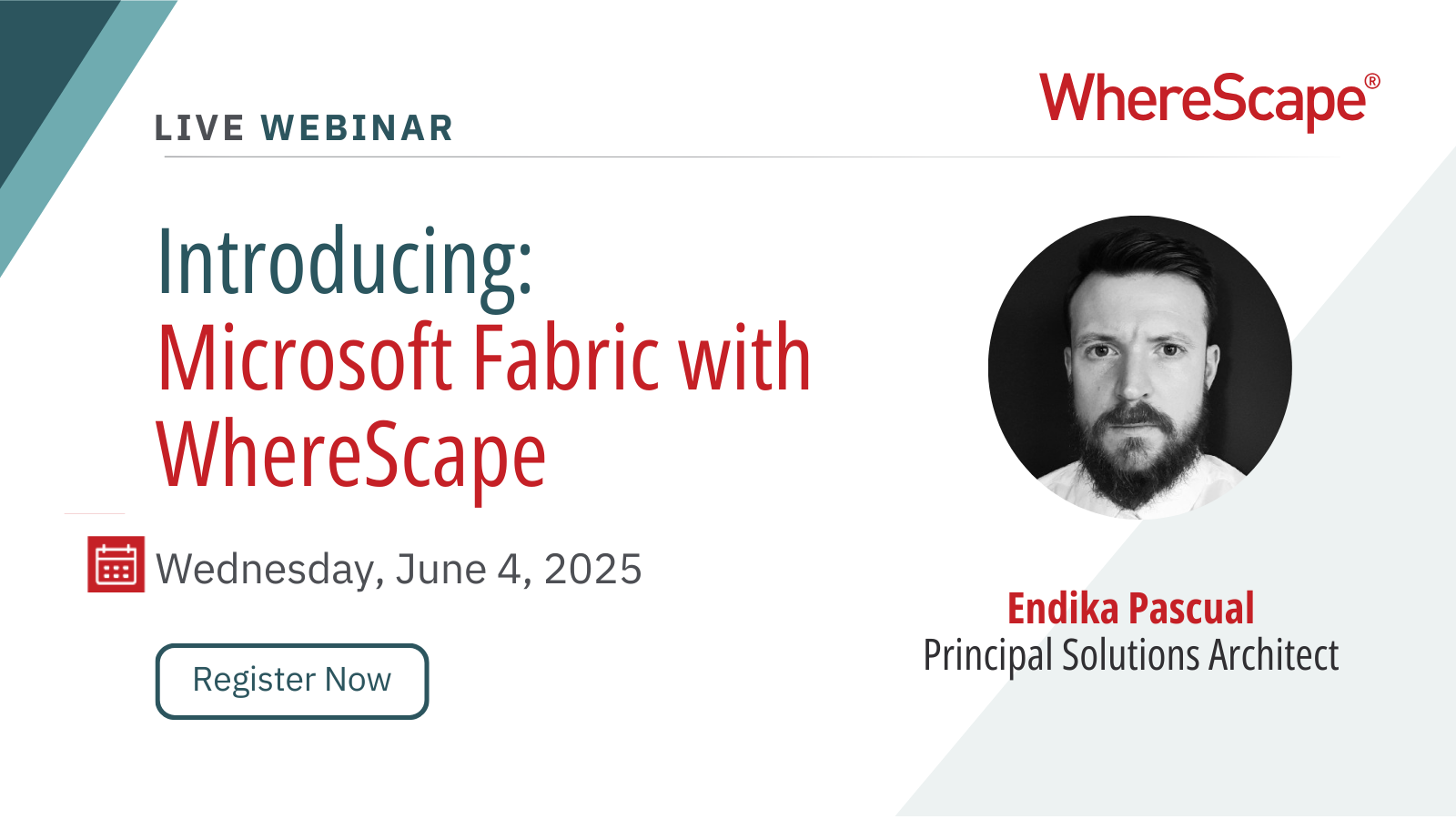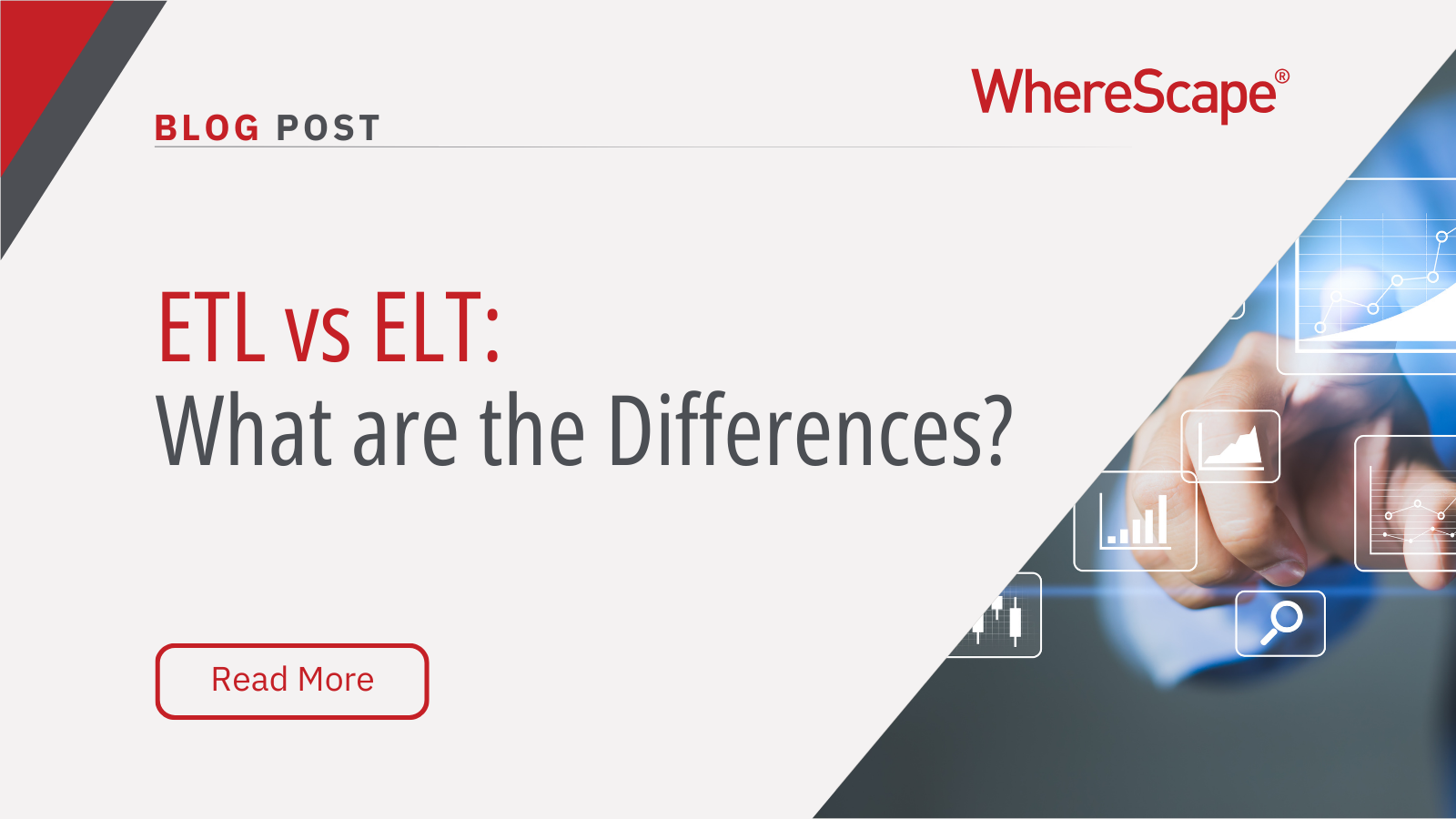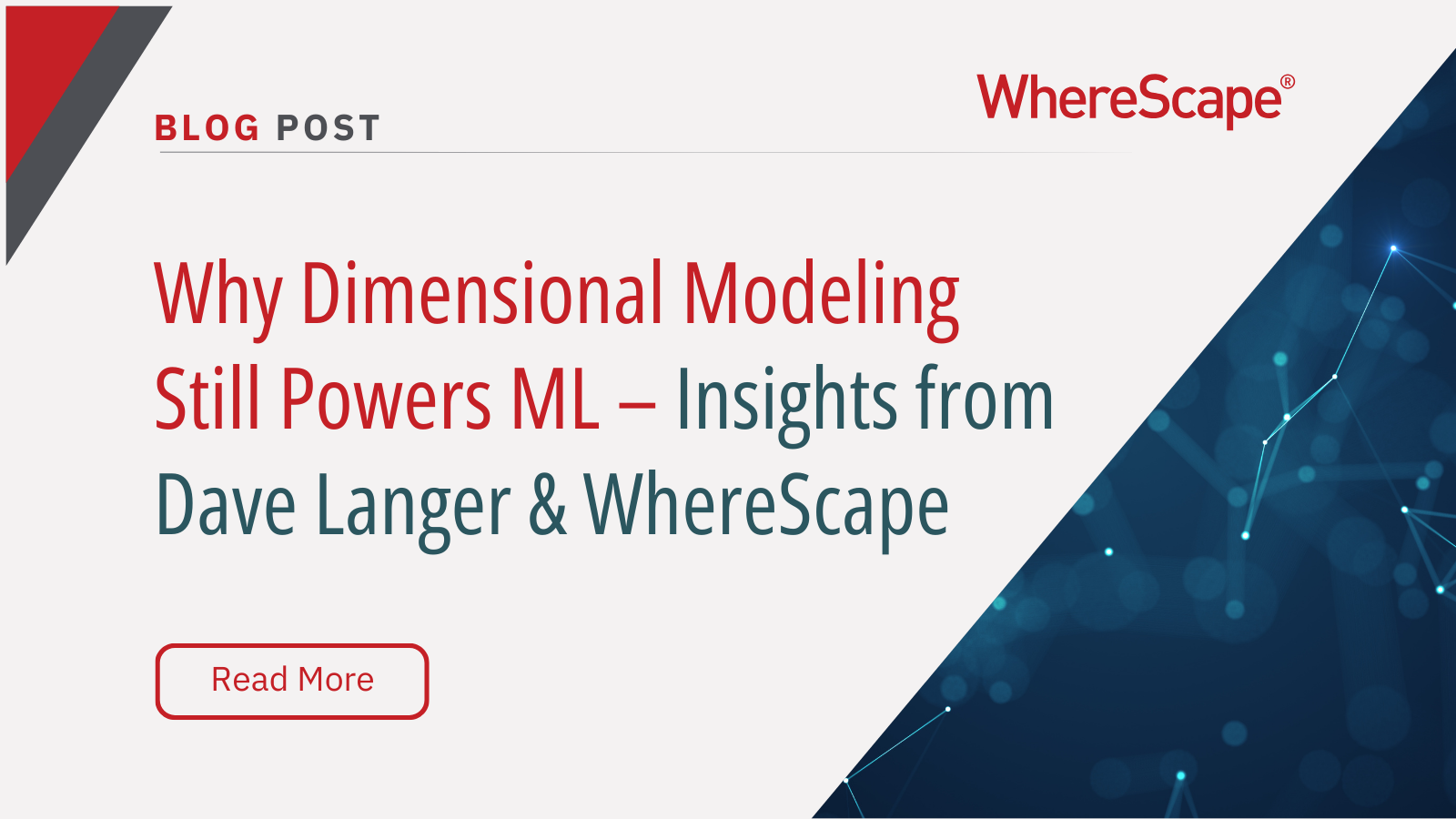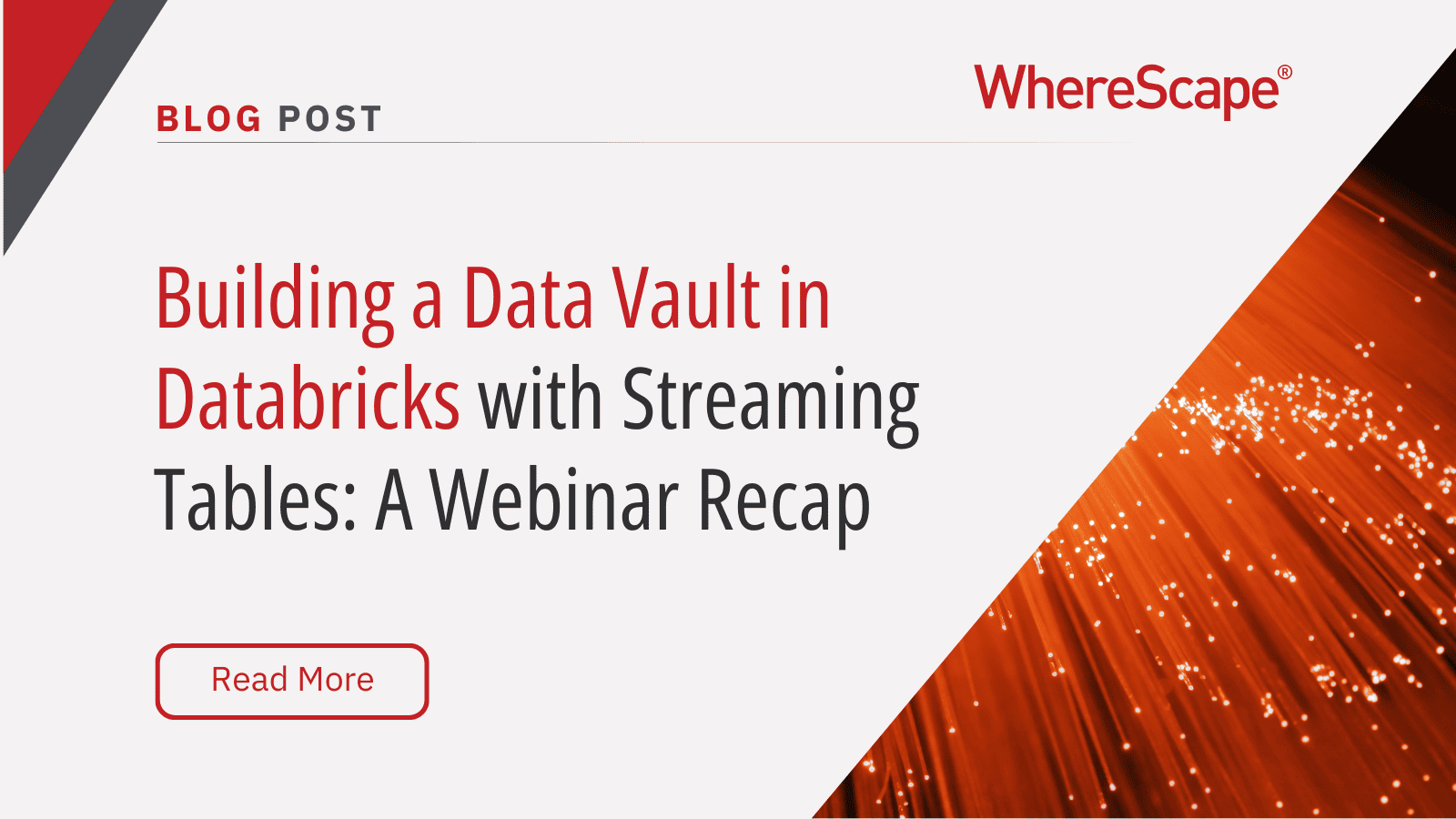Discover how-to unlock exciting new...
The data warehouse – how the ‘what’ has replaced the ‘why’ for IT leaders
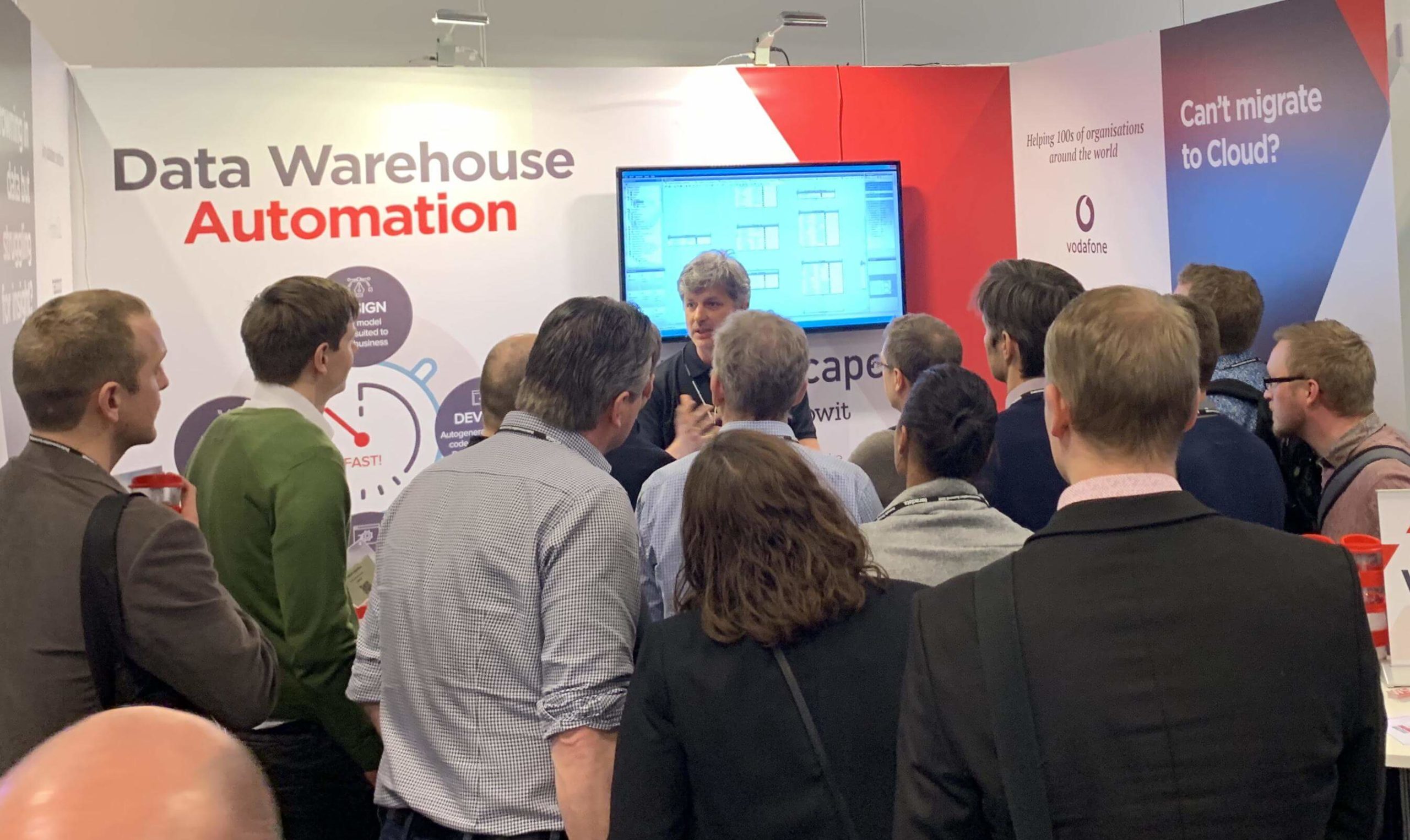
Chatting to prospective customers at a recent event, it struck me that, for buyers and sellers of data warehouse solutions, the conversation between the two has shifted irrevocably over the last few years.
With an increasingly buyer-driven purchase process, it’s no longer necessary to discuss with a prospective customer ‘why’ a data warehouse is necessary. Instead, our challenge is to reassure buyers that the ‘what’ of the purchasing decision made today will still be the right one for tomorrow. And automation is the key to that puzzle.
As firms recognise that putting data at the heart of their business can derive competitive advantage, many have begun the process of a digital transformation, and this has led buyers to look at their existing data infrastructure. Most come to the conclusion that their data platforms need modernising but are often fearful of making the wrong decision as to what platform to purchase. With ‘time to value’ of technology investments never more under scrutiny, the risk of being locked into technology that won’t deliver the required gains is one that concerns many of the IT leaders I talk with about data warehousing. They want to know ‘what’ they are going to be getting for their investment and want to understand how they can be assured that it will drive continual value for their organisations.
Now, while I am confident in my own professional abilities, I can never claim to be a fortune teller. However, when looking forward and analysing the right strategy for choosing a new data warehouse platform, I believe I have developed a sensible approach. This process has been tested by the numerous customer engagements I’ve witnessed over the years and is one I’m confident in sharing to alleviate the fear of making the wrong decision.
The strategy is not to be bound too tightly to one platform, but instead to craft a data infrastructure strategy that supports the flexibility needed ahead as your organization, and technology, changes and evolves. A future-proofed approach. Automation of the data warehouse is key to the execution of that strategy – and provides the assurance to buyers that the decision they are making today will also support them well for the future.
You see, whether organizations continue to rely on on-premises data warehouse platforms, migrate to the cloud or will manage hybrid environments of both for the long-run, teams can use automation to provide more to the business faster, with less cost and risk. Customers using automation rather than traditional approaches to design, develop, deploy and operate data infrastructure routinely deliver projects up to 80% faster. Additionally, for organizations ready to move past traditional waterfall development, automation offers the agility to work collaboratively and make adjustments sooner as business users see early iterations of their requests.
Automation also provides the flexibility for teams to pursue the architecture best suited for their organizational needs and fit – data warehouses, data vaults, data marts and data lakes. And makes it easier for them to introduce new data sources and data types into their infrastructure as they emerge, such as streaming data. Metadata-based automation solutions, like WhereScape® automation software, provide IT leaders the flexibility needed to ensure their investment today will support organizational needs well into the future. By leveraging metadata and automation, organizations can not only quickly adopt new technologies, they can also much more easily migrate, regenerate and optimize existing data warehouses on new data platforms as needed down the line.
Peace of mind, we all seek it. My role in conversations these days is to assure buyers that not only can we automate the ‘what’ they decide to purchase to help them reap its benefits faster, but automation will also serve as a safety net if future needs dictate a change. The ‘why’ is data warehousing beneficial conversation is well behind us. The future looks bright.
ETL vs ELT: What are the Differences?
In working with hundreds of data teams through WhereScape’s automation platform, we’ve seen this debate evolve as businesses modernize their infrastructure. Each method, ETL vs ELT, offers a unique pathway for transferring raw data into a warehouse, where it can be...
Dimensional Modeling for Machine Learning
Kimball’s dimensional modeling continues to play a critical role in machine learning and data science outcomes, as outlined in the Kimball Group’s 10 Essential Rules of Dimensional Modeling, a framework still widely applied in modern data workflows. In a recent...
Automating Data Vault in Databricks | WhereScape Recap
Automating Data Vault in Databricks can reduce time-to-value by up to 70%—and that’s why we hosted a recent WhereScape webinar to show exactly how. At WhereScape, modern data teams shouldn't have to choose between agility and governance. That's why we hosted a live...
WhereScape Recap: Highlights From Big Data & AI World London 2025
Big Data & AI World London 2025 brought together thousands of data and AI professionals at ExCeL London—and WhereScape was right in the middle of the action. With automation taking center stage across the industry, it was no surprise that our booth and sessions...
Why WhereScape is the Leading Solution for Healthcare Data Automation
Optimizing Healthcare Data Management with Automation Healthcare organizations manage vast amounts of medical data across EHR systems, billing platforms, clinical research, and operational analytics. However, healthcare data integration remains a challenge due to...
WhereScape Q&A: Your Top Questions Answered on Data Vault and Databricks
During our latest WhereScape webinar, attendees had fantastic questions about Data Vault 2.0, Databricks, and metadata automation. We’ve compiled the best questions and answers to help you understand how WhereScape streamlines data modeling, automation, and...
What is Data Fabric? A Smarter Way for Data Management
As of 2023, the global data fabric market was valued at $2.29 billion and is projected to grow to $12.91 billion by 2032, reflecting the critical role and rapid adoption of data fabric solutions in modern data management. The integration of data fabric solutions...
Want Better AI Data Management? Data Automation is the Answer
Understanding the AI Landscape Imagine losing 6% of your annual revenue—simply due to poor data quality. A recent survey found that underperforming AI models, built using low-quality or inaccurate data, cost companies an average of $406 million annually. Artificial...
RED 10: The ‘Git Friendly’ Revolution for CI/CD in Data Warehousing
For years, WhereScape RED has been the engine that powers rapidly built and high performance data warehouses. And while RED 10 has quietly empowered organizations since its launch in 2023, our latest 10.4 release is a game changer. We have dubbed this landmark update...
The Assembly Line for Your Data: How Automation Transforms Data Projects
Imagine an old-fashioned assembly line. Workers pass components down the line, each adding their own piece. It’s repetitive, prone to errors, and can grind to a halt if one person falls behind. Now, picture the modern version—robots assembling products with speed,...
Related Content
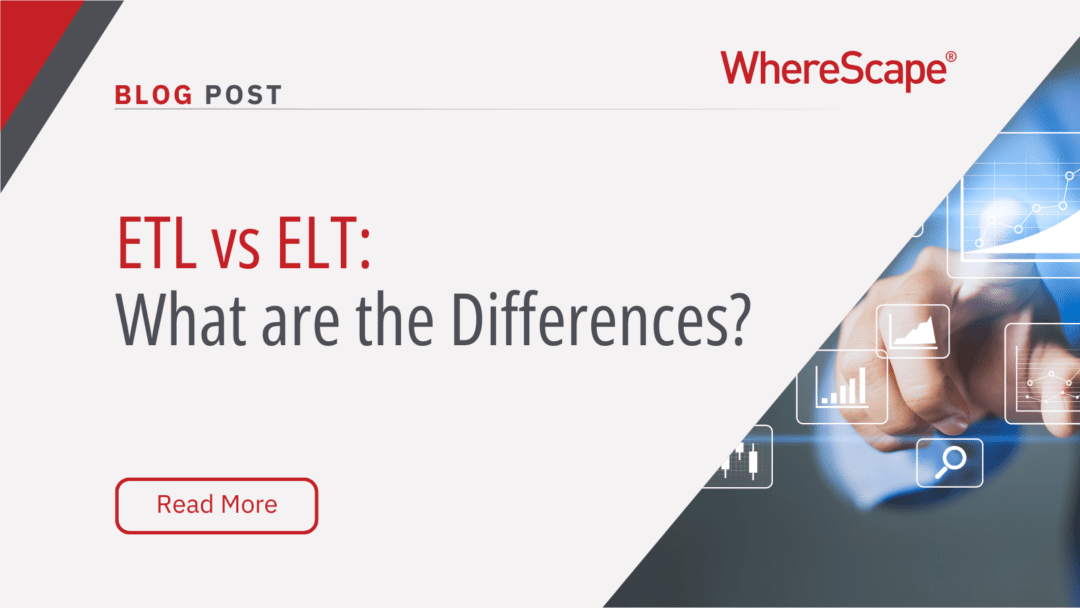
ETL vs ELT: What are the Differences?
In working with hundreds of data teams through WhereScape’s automation platform, we’ve seen this debate evolve as businesses modernize their infrastructure. Each method, ETL vs ELT, offers a unique pathway for transferring raw data into a warehouse, where it can be...
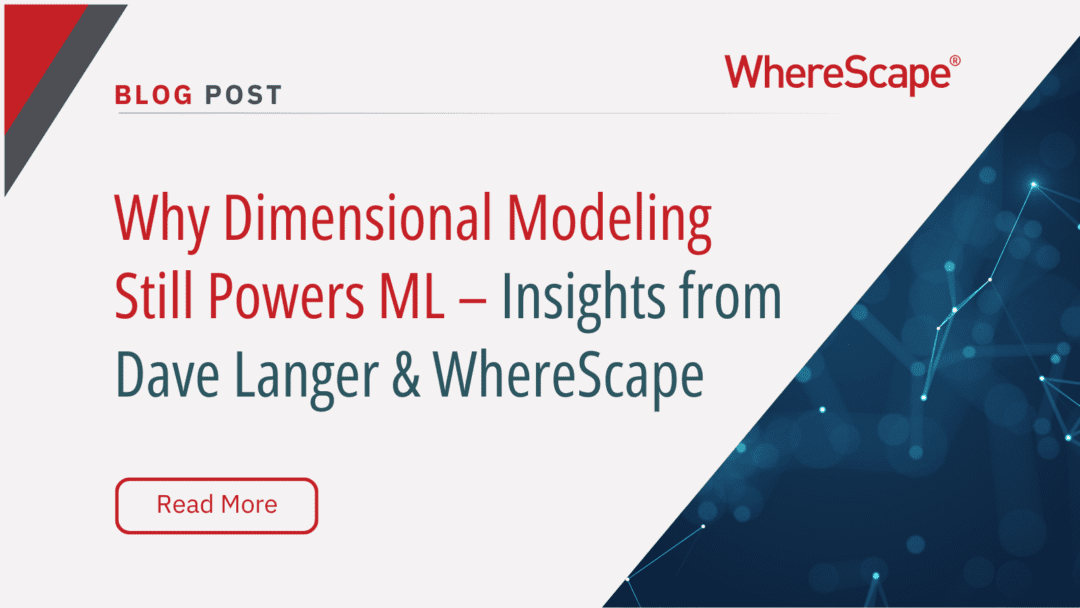
Dimensional Modeling for Machine Learning
Kimball’s dimensional modeling continues to play a critical role in machine learning and data science outcomes, as outlined in the Kimball Group’s 10 Essential Rules of Dimensional Modeling, a framework still widely applied in modern data workflows. In a recent...
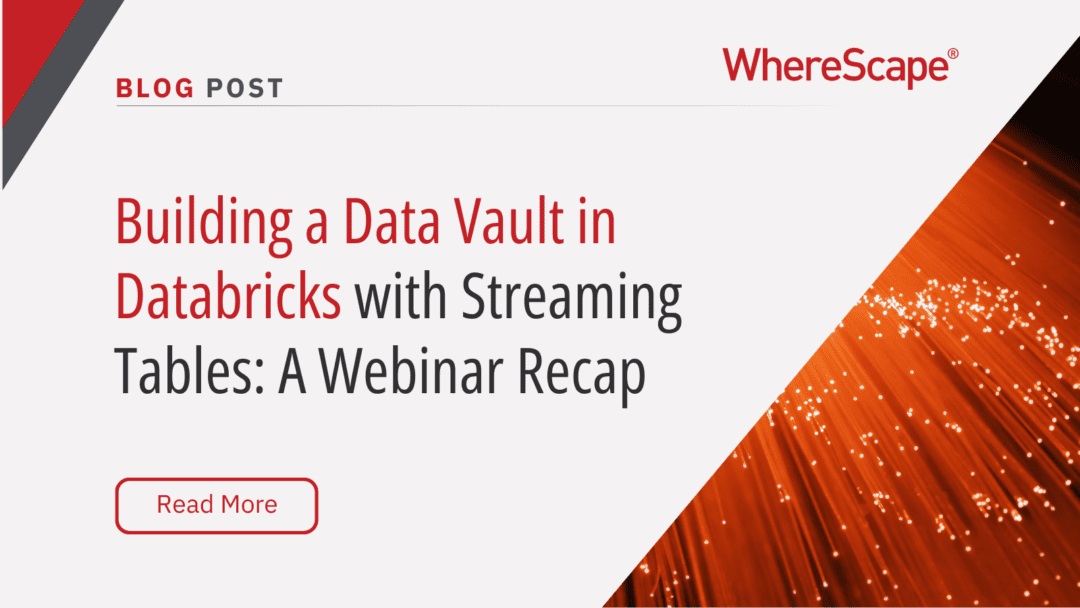
Automating Data Vault in Databricks | WhereScape Recap
Automating Data Vault in Databricks can reduce time-to-value by up to 70%—and that’s why we hosted a recent WhereScape webinar to show exactly how. At WhereScape, modern data teams shouldn't have to choose between agility and governance. That's why we hosted a live...
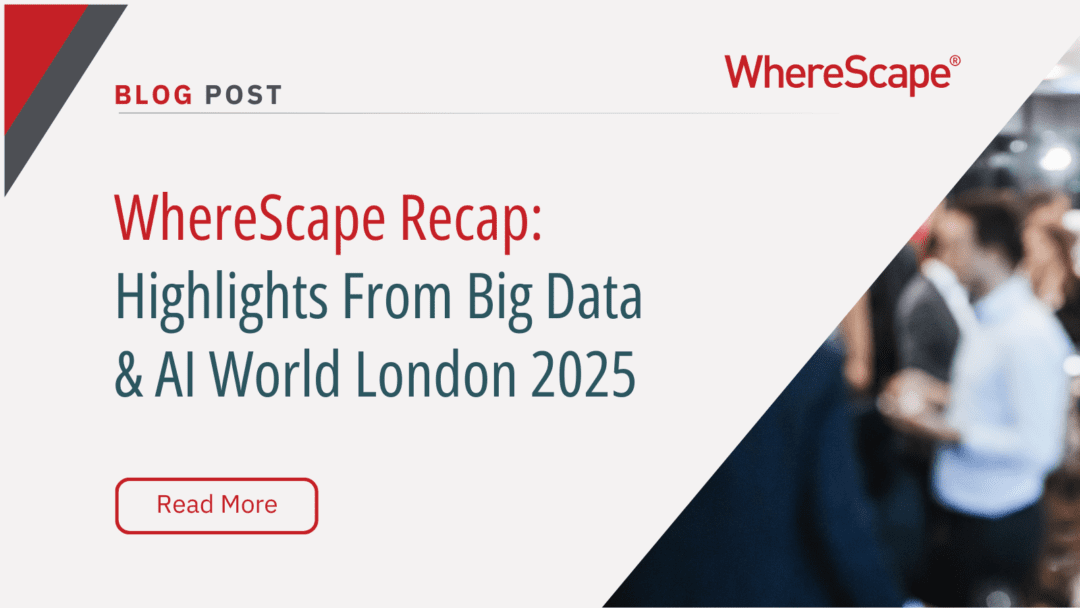
WhereScape Recap: Highlights From Big Data & AI World London 2025
Big Data & AI World London 2025 brought together thousands of data and AI professionals at ExCeL London—and WhereScape was right in the middle of the action. With automation taking center stage across the industry, it was no surprise that our booth and sessions...

